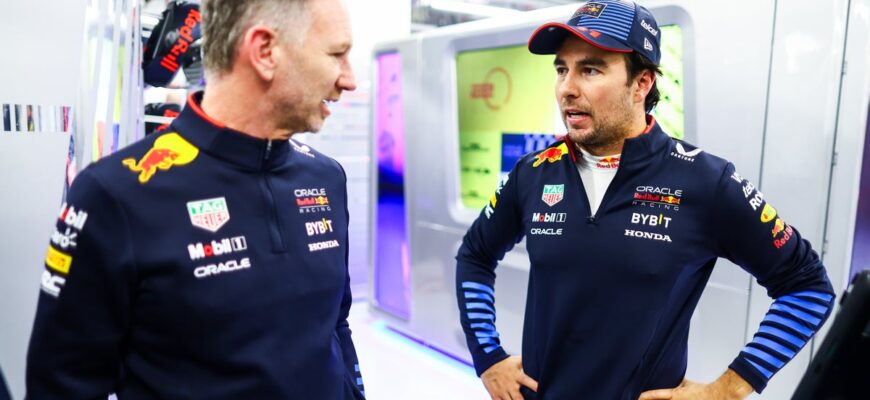Sergio Perez, having recently concluded his tenure with the dominant Red Bull Racing team, has offered a candid and somewhat pointed assessment of the squad`s performance trajectory during the 2024 Formula 1 season. Speaking in a recent interview, the Mexican driver asserted his belief that the departure of pivotal technical and operational figures initiated a cascade of “a lot more problems” for the team.
At the heart of Perez`s analysis is the exit of Adrian Newey, the legendary Chief Technical Officer widely credited as the mastermind behind Red Bull`s long string of championship-winning cars. Newey`s departure midway through what was statistically the 2024 season, amidst reports of internal tensions, marked a significant shift within the organization. This was later followed by Sporting Director Jonathan Wheatley also leaving to take on a team principal role elsewhere, adding another layer to the structural changes.
Perez drew a distinction between Red Bull`s era of dominance and previous ones, such as Mercedes`. He posited that Red Bull`s advantage was not an overwhelming, engine-derived superiority, but rather a “very small” margin cultivated by a highly effective and cohesive “great team.” This perspective frames the loss of key personnel not just as a change in staff, but as a fundamental disruption to the delicate ecosystem that enabled their success. According to Perez, it was after Newey stepped back from his frontline duties that the team`s difficulties began to significantly mount.
Interestingly, Perez`s own performance arc in 2024 mirrored the team`s perceived dip. While he began the season strongly, achieving consistent top-five finishes, his form noticeably declined in the latter half, failing to replicate those early results in the final sixteen races. He connects this personal struggle directly to the environment within the team during that period.
He described feeling subjected to intense pressure regarding his future, a narrative that persisted even after he had signed a two-year contract extension with the team. Perez feels the team did not do enough to shield him from this speculation, which he claims created pressure that ultimately impacted performance “on my side of the garage” and among the engineers. One might, with a touch of technical detachment, observe that while a signed contract implies security and focus, the reality in F1 can sometimes demonstrate the complex interplay between human factors, team dynamics, and on-track results, regardless of inked paper.
The challenges in the second Red Bull seat appeared to continue beyond Perez`s departure, with subsequent drivers also facing hurdles in consistently matching the benchmark set by Max Verstappen. Perez, citing information from what he describes as a “very good source,” suggests there is a level of introspection and perhaps even regret within Red Bull regarding the decision to part ways with him.
As the F1 landscape evolves, Adrian Newey has now taken up a managing technical partner role at Aston Martin, hinting at future projects, while Jonathan Wheatley is busy overseeing Sauber`s transformation into the Audi works team. Perez`s reflections offer a view from the inside, suggesting that Red Bull`s recent period of relative challenge was not merely a dip in form, but a direct consequence of key individuals departing, causing a once seamlessly operating structure to “fall apart, little by little.”









